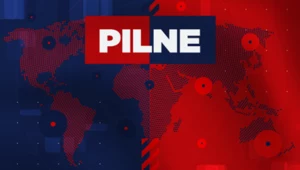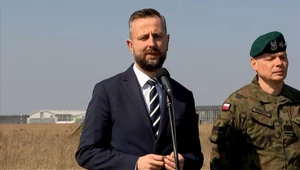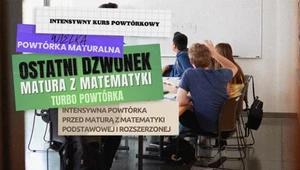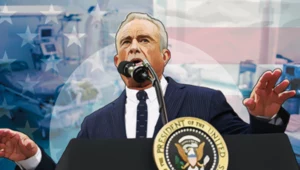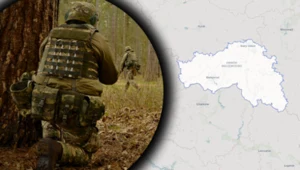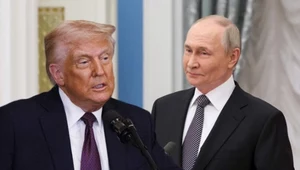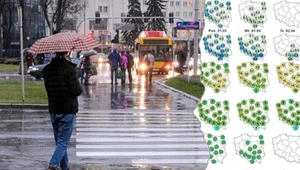Guy Verhofstadt: The European Union is on a crossroad
- As long as life is dangerous and miserable in Africa, people will try to come to Europe. It is our duty to help to create the conditions for Africa to flourish - tells us Guy Verhofstadt, former belgian Prime Minister and the leader of Liberals and Democrats for Europe, a political group in the European Parliament.
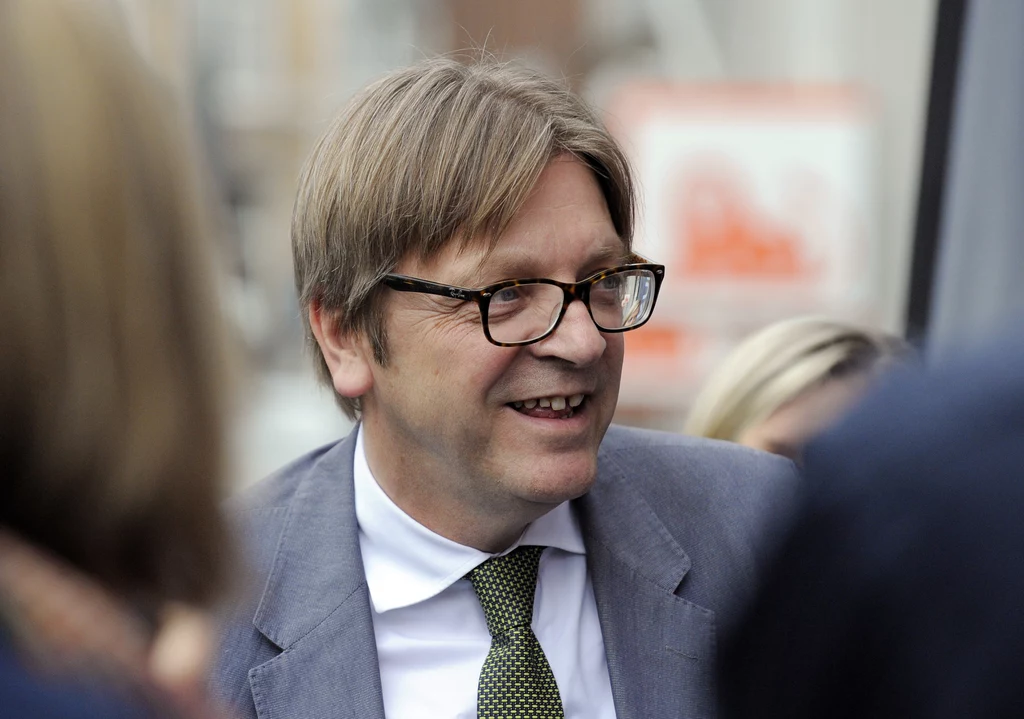
Michał Michalak, Interia: Not only Greeks but also a lot of European analysts see the new EU-Greece deal as humiliating for this country. Are they wrong?
Guy Verhofstadt: - The negotiations have been extremely tough. Greece and the rest of the Eurozone member were in a stalemate for a couple of months. I regret that it was only after months of negotiations and a 17 hour Eurozone meeting that a compromise could be found. The lack of reforms for the last decades is the fundamental problem of Greece. My hope is that Prime Minister Tsipras will use this opportunity to drastically reform his country. Not because the European Union obliges him to do this, but because his own people want to get rid of the clientelistic and corrupt political system. It is the only way for Greece to have sustainable economic future.
Alexis Tsipras said that he doesn’t believe in the new plan, Yanis Varoufakis claims that it will be a "catastrophe". Do you think those reforms will work?
- Tsipras has expressed that the negotiations were very tough, but he has committed himself to reform Greece. His Parliament is backing him. Yesterday, Greece's parliament adopted the second batch of prior actions with 230 Yes votes against 63 No and 5 abstentions. Former Finance Minister Yanis Varoufakis also voted in favour.
- The reforms are necessary and I see a political will to make them work. Greece has to change. A country that is not productive, where the rule of law is not working and which has lost its competitive edge will have difficulties to stay in the Eurozone. This is the make change happen and I am glad to see that Tsipras finally shows commitment to make it work.
What about the other countries struggling with big unemployment rate and debts - do you see a light in the tunnel?
- Europe is indeed struggling with big problems. High unemployment rates, a lack of competitiveness and low growth. The main reason for these problems is that we have created a monetary union without a political union. We have to learn from this crisis and make the necessary changes.
- A currency union, with 19 different national vetoes, is simply unworkable. If Europe is to exit this crisis, the Eurozone must act now to implement radical reform that will deliver a genuine political and economic union. In concrete terms, it means a sharing of sovereignty among the EU countries that have the euro as their currency by creating a common debt management system and a European Treasury. A common debt management system will give countries more possibilities to invest in growth instead of reimbursing interests on their debt and a European Treasury will give the EU the means to deal with temporary financial setbacks in parts of the EU. This will require leadership, but it is the only sustainable solution to find the path to economic growth again.
Do you think that some European Union countries should be more helpful in solving the immigration crisis? Should there be obligatory numbers of how many immigrants every country is supposed to welcome? Is there a long-term solution for the illegal immigration in Europe?
- I do indeed believe that the immigration crisis is not solely a matter for Greece or for Italy. It is a European problem and demands a European solution. I am in favour of obligatory quota for the Member States, but we should also, first and for all, deal with the root causes of the immigration problem.
- We have to take away the incentive for young Africans to undertake the dangerous journey to Europe to find a better life. This can be done by investing in safe havens in Africa, where people who are fleeing from wars find a safe shelter. And instead of obliging them to ask for asylum in Europe, we should create a system that allows them to ask for humanitarian visas at our embassies abroad.
- We have to help them also to build a better life in Africa by giving them the opportunities which are lacking at the moment. We should show more efforts to give Africa the means to become prosperous and safe. We can do this by opening up our markets to agricultural products from Africa, by cooperating more in our peacekeeping efforts and by streamlining our development aid.
- As long as life is dangerous and miserable in Africa, people will try to come to Europe. It is our duty to help to create the conditions for Africa to flourish.
Do you think it is good for the European Union that Germany hold such a strong position as a leader?
- Germany is indeed a very strong country, but it is wrong to assume that it is only Germany that decides. We have seen that the French President Hollande has played a strong role the last couple of weeks and the middle and eastern European countries are becoming more prominent. The fact that Donald Tusk is now at the helm of the Council is evidence of the strong role that Poland is playing at the European stage.
- In the end all countries are stronger if we work together at the European level. No single country is strong enough to play an important role at global level on its own. Compared to countries such as India, China and the US, every single country in Europe is small in a global context.
- It is in our interest to work closely together and the institution that represents all of us, in an impartial way, is the European Commission. That’s why I believe it is important that the Commission receives the necessary powers and trust to act on behalf of the European Union.
There will be a parliament election in Poland this autumn. You have expressed your support of Ryszard Petru’s party. How much is the EU interested in what will happen in Poland this year? Does it matter for the EU future?
- From the Brussels perspective: the EU is on a crossroad. There is no way we can face Russia in the East and a migration crisis in the South without a strong EU. There is no way we can sustain global competition without a modern and completed internal market. There is no way we can win future struggle for natural resources without the leverage of the whole EU.
- Poland is of paramount importance in this context. It is one of the biggest countries and is one of the fastest growing economies. But from an outsider`s perspective, I believe that much more is needed to strengthen the rule of law and modernise the judiciary, to modernise the labour market and give Polish people - known across Europe for their skills - the option to succeed also at home, to put the social system, health care and pensions on a sustainable footing and to make Poland fit for international economic competition.
- Poland needs a political force with courage to take the much needed reforms. Such a courageous, modern force is missing in Poland today. Poland needs a pro-European force with courage for political and economic reforms. A force which brings Poland into the center of the EU.- Nowotschesna embodies this vision. That’s why I support Ryszard Petru. He has shown real commitment to strengthen the role of Poland in the EU and to broaden Poland’s influence when Europe's future is being shaped.
How is Donald Tusk doing as a President of the European Council in your opinion? There were some rumors that you don’t get along too well...
- These rumors are false. I have a very good relationship with Donald Tusk. He presides the Council in a way that I appreciate: no-nonsense and results-oriented. This has led to results. A Grexit has been avoided and the Council did find an agreement on the immigration policy. The agreement was not satisfactory in my view, but that was not the fault of President Donald Tusk. He has shown to be able to deliver results and has my full support to encourage the Member States to work more closely together and find common solutions.
Is it still your personal ambition to become the President of the European Commission? What do you want to achieve for yourself and for Europe?
- I am Group leader of the European Liberals and Democrats for Europe and enjoy this job very much. My colleague-MEPs and I are working hard to explain people that there is another way for Europe. That we have to break the deadlock, be bold and dare to change Europe for the better. That means that we have to work more closely together to make Europe more prosperous, safer and more relevant. That is my goal and that’s what I will be focusing on the upcoming years.


